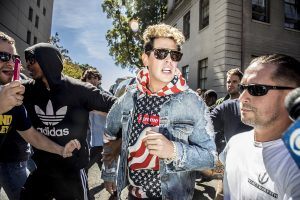Jeremy Waldron in the New York Review of Books:

When members of the National Socialist Party of America planned to march through the largely Jewish Chicago suburb of Skokie, Illinois, in 1977 with swastikas on their banners, they were not supposed to be interfered with. That was their right; that was what the First Amendment required as far as the regulation of speech on the streets was concerned. But does that right also apply on campus? When a few hundred white supremacists staged a nighttime march through the University of Virginia in August 2017 carrying torches and chanting “Jews will not replace us,” should that have been protected as free speech? Would the campus setting and the link with education have made it just as wrong—perhaps even more wrong—for university authorities and student groups to try to stop the white supremacists in Charlottesville as it was for the village of Skokie to put legal obstacles in the way of Frank Collin and his little band of Nazis forty years ago?
I don’t ask this as a constitutional question. Technically, the First Amendment constrains only government actions, so it applies differently to state colleges like the University of Virginia and private ones like Middlebury College. But let’s put that technicality aside. Behind the First Amendment there is supposed to be a principle of free speech that applies to everyone in our society—a strong ethic that says we should never shut down the expression of controversial views just because of their content. The question is whether that ethic of free speech matters more or less on campus than it does in society generally. Should we say, as Sigal Ben-Porath says in her book Free Speech on Campus, that “colleges and universities hold a unique place in the conversation about speech”?
More here.
